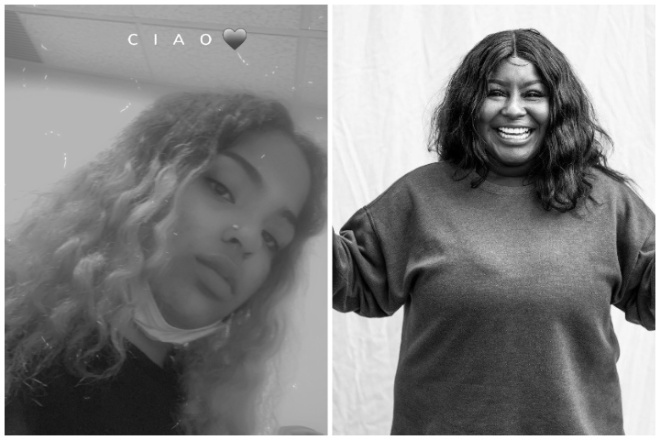We are youth advocates who were incarcerated at the ages of 14 and 15 — and we don’t want the juvenile legal system to do to others what it did to us and our peers. When a person under 18 comes into the justice system, they must be treated not as an adult, but as a child, a kid.
Today’s system hurts instead of helping detained kids, who are more likely to come from low-income families and already be trauma-impacted before being arrested. Direct file is not treating kids as kids. [Editors’ note: Direct file applies to charges that automatically send a youth to adult court without any room for a judge to consider individual circumstances.] Forcing youth with no money to pay the courts isn’t treating kids as kids. Overuse of placement and detention is not treating kids as kids but rather as case numbers, giving a punishment rather than supportive services.
One of us was incarcerated at age 15 and ordered to pay the courts thousands and thousands of dollars — money that was literally not possible to pay. This added another hardship to the incarceration, not just for one of us, but for our family, putting them in debt before they could think about buying food, paying for gas, electricity or housing — which was already a burden, because of the rising housing cost crisis in Philadelphia. Because young people can’t pay, the courts never receive the money, but families go into debt or the youth is kept on court supervision longer.
The current system doesn’t help grow doctors or pediatricians, firefighters, lawyers, judges, or child advocates. Instead, the system is creating long-term harms and trauma.
How is this justice? It just increases poverty and trauma. It helps no one.
One of us was sent to placement — adjudicated as a delinquent and placed in a youth detention facility. But placement should not be the first answer for children. There are more solutions than locking kids away. Young people do better in their homes and communities. We need to invest in alternative support and diversion opportunities, less placement and more supportive services that target a youth’s unique challenges.
Placements are overcrowded with little to no education and limited tools and resources to help youth change positively, let alone thrive. As for youth who aren’t secure or supported at home, their involvement with the justice system too often results in over-punishment and getting sent out of their homes instead of receiving the support they need in their homes.
Addressing problems before justice gets involved — with good schools, community supports, and positive programming — needs to be the starting point for support for a young person.

We care about common sense reforms to the juvenile legal system because our futures are at stake. If we are being honest, it feels like no one in power wants to help change how our justice system treats children. Most of PA’s legislators are simply not looking ahead to what happens when these youth become adults. The current system doesn’t help grow doctors or pediatricians, firefighters, lawyers, judges, or child advocates. Instead, the system is creating long-term harms and trauma.
People in power say that young people are out of control now. If we don’t better support our young people, what will it look like 20 years from now? This is why we are advocating for HB 1381, a comprehensive omnibus bill to reform juvenile justice that House leaders Dan Miller (Allegheny County), Jordan Harris and Donna Bullock (both Philadelphia) proposed in May of 2023.
The bill cites an extensive 2021 report by the Juvenile Justice Task Force that says “Pennsylvania involves police and arrests our kids at rates that dwarf our neighboring states … arresting them nine times more than West Virginia, seven times more than Ohio, and almost 15 times more than New York.” Black girls like us are three times more likely to be involved with police than White girls. And, “Black boys are arrested more, removed from home more, are tried as adults more, and stay in placement longer than any other demographic (while representing a fraction of our state youth population).”
HB 1381 wants to end direct file to adult court, put caps on juvenile probation, require a juvenile to consult with an attorney before waiving their rights, prohibit solitary confinement for children, get rid of most court fees for kids, end forced admissions for first-time offenders, provide more protections for children with disabilities, stop criminal prosecution of children under age 10, and expand the use of diversionary informal adjustments for low-level offenses.
We may tell you 1,001 times how harmful the system is, but now we want people to know how this bill can help the system and our youth. Ending mistreatment of children who are more likely to already have life harder than other kids is the start of helping children who need it most. Our youth need everyone to have their best interests at heart like they would for their own children. No kid deserves to be treated this way.
It’s time to see these reforms become law.
Aqilah David is 24. Alexandria Rivera is 24 . They are youth advocates with Juvenile Law Center and members of #CareNotControl.
The Citizen welcomes guest commentary from community members who represent that it is their own work and their own opinion based on true facts that they know firsthand.
![]() MORE JUSTICE REFORM FROM THE CITIZEN
MORE JUSTICE REFORM FROM THE CITIZEN



